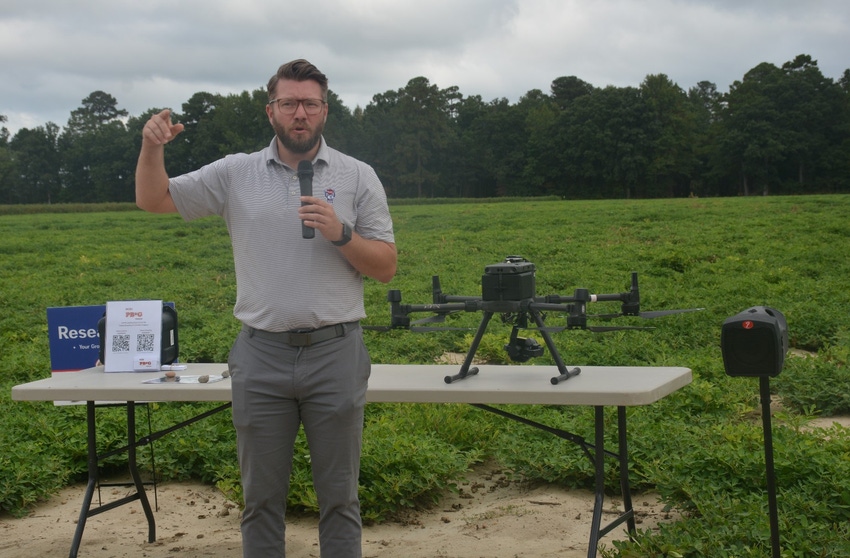
North Carolina State University Peanut Breeder Jeff Dunne showcased two new peanut lines released by his program at a September peanut field day. One should be commercially available by 2024 and the other by 2025.
Dunne expects the new variety NC 20 to be released in 2024 and the variety NC 21 to be released in 2025. Final selections for NC 20 and NC 21 were made in 2020 and 2021 respectively. Dunne notes that breeder seed was grown out in 2021 for NC 20 while breeder seed was grown out this year for NC 21. The first year of foundation seed NC 20 is 2022 while the first year for foundation seed for NC 21 will be 2023.
Dunne says a big plus of both NC 20 and NC 21 is that they are later maturing varieties which will allow peanut farmers to harvest them later and extend their harvest window. NC 20 and NC 21 will mature anywhere from 10 to 14 days after such varieties as Bailey II.
“The really nice attribute of NC 20 is the ability to hold onto its pods under heavy disease pressure. We feel comfortable enough that you can leave NC 20 in the field a little bit longer so you can get your Bailey IIs out of the field and then come back and get your NC 20s following that. We know it is very difficult and challenging to get all your peanuts out at the same time,” Dunne said at the 70th annual Peanut Field Day at the Peanut Belt Research Station in Lewiston-Woodville Sept. 8.
Dunne said NC 20 performs very much like Bailey II. It does offer a little bit larger pod size than Bailey II. Like Bailey II, it offers a good disease-resistance package, especially for leaf spot and Tomato Spotted Wilt Virus. Dunne said NC-20 is very pure in terms of its high oleic content. Dunne emphasized that all the lines in his breeding program are now high-oleic.
“NC 21 is a larger seeded, larger pod variety. Our goal here was to find a replacement similar to that of Wynne. Wynne is a large seed, large pod type variety. NC 21 has an okay disease package in terms of comparison to NC 20. One of the nice things about it is it’s later maturing, but holds on to its pods really well later in the season, especially under heavy disease pressure,” Dunne said.
Dunne said both NC 20 and NC 21 offer good parity with Bailey II and Emery. He said both varieties complement each other in terms of pod size, seed size and disease resistance.
In addition to NC 20 and NC 21, Dunne’s breeding program has released Comrade, a variety targeted to Oklahoma and northern Texas. Comrade is a high-oleic Virginia cultivar Northb Carolina State developed and released jointly with USDA’s Agricultural Research Service. Dunne noted that Comrade is generally not suited for North Carolina peanut farmers, but it does work well in the Southwest.
Dunne worked with Oklahoma-based ARS Peanut Breeder Kelly Chamberlin in the release of Comrade. Comrade is an early maturing variety and is needed in Oklahoma where sclerotinia blight is a bigger problem than it is in North Carolina.
“Originally, we thought this variety Comrade would be sclerotinia blight resistant when in fact it is sclerotinia avoidant,” Dunne said.
Comrade will be managed by the Oklahoma foundation seed program. Dunne expects Comrade to be commercially available to Oklahoma peanut farmers in two years. “It is still our line, so we are still going to be testing it,” he said.
About the Author(s)
You May Also Like






